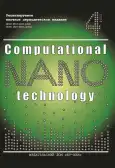Analysis and evaluation of algorithms for personalization of interaction with the user for the development of a social network
- Authors: Mingaleev R.R.1, Mangusheva A.R.1
-
Affiliations:
- Kazan National Research Technological University
- Issue: Vol 11, No 4 (2024)
- Pages: 19-24
- Section: ARTIFICIAL INTELLIGENCE AND MACHINE LEARNING
- URL: https://journals.eco-vector.com/2313-223X/article/view/658302
- DOI: https://doi.org/10.33693/2313-223X-2024-11-4-19-24
- EDN: https://elibrary.ru/FTISLK
- ID: 658302
Cite item
Abstract
This article analyzes personalization algorithms for social networks, with key objectives being the enhancement of user interaction and the improvement of recommendation relevance. The goal of this work is to evaluate various personalization approaches, such as recommendation systems and machine learning algorithms, as well as to assess the accuracy of these algorithms. Personalization approaches based on recommendation systems and machine learning methods are discussed, along with the application of artificial intelligence to improve recommendation accuracy. Three primary recommendation system algorithms are presented: collaborative filtering, content-based filtering, and hybrid models. Collaborative filtering was selected as the main personalization method, using the Python Library Surprise, which includes algorithms such as Singular Value Decomposition, Slope One, and K-Nearest Neighbors. A comparative analysis of Root Mean Squared Error and Mean Absolute Error metrics revealed that the K-Nearest Neighbors algorithm showed the best results, making it the preferred choice for further implementation. The final model, trained on the full dataset, demonstrated strong accuracy and potential for practical use in real products. The results presented could be valuable for social network developers in choosing optimal algorithms to enhance user experience, as well as for future research in personalization and recommendation systems.
Full Text
About the authors
Ruslan R. Mingaleev
Kazan National Research Technological University
Author for correspondence.
Email: neoch56@mail.ru
postgraduate student, Department of Intelligent Systems and Information Resource Management
Russian Federation, Kazan, Republic of TatarstanAlina R. Mangusheva
Kazan National Research Technological University
Email: alinamr@mail.ru
Scopus Author ID: 57442238900
associate professor, Department of Intelligent Systems and Information Resource Management
Russian Federation, Kazan, Republic of TatarstanReferences
- Monastyrev V.V., Drobintsev P.D. Recommendation system based on user actions in the social network. Proceedings of the Institute for System Programming of the RAS. 2020. Vol. 32. No. 3. Pp. 101–108. doi: 10.15514/ISPRAS-2020-32(3)-9.
- Kukitz P.V. Application of machine learning for personalization of recommendations in the foodtech industry. Journal of Advanced Research in Technical Science. 2024. No. 42. Pp. 31–41. (In Rus.). doi: 10.26160/2474-5901-2024-42-31-41.
- Kruglik A.S., Lakman I.A. Hybrid Approach of Content-Enhanced Collaborative Filtering in Recommender Systems. Information Technologies. 2020. Vol. 26. No. 9. Pp. 523–528. (In Rus.) doi: 10.17587/it.26.523-528.
- Lyalikova V.G., Bezryalin M.M. Construction of a Hybrid Recommender System. Bulletin of Voronezh State University. Series: Systems Analysis and Information Technologies. 2021. No. 4. Pp. 121–129. (In Rus.)
- Tretyakov D.A. Development of a Recommender System Based on the Collaborative Filtering Method with the Possibility of Using Custom Modifiers. In: Scientific creativity of youth. Mathematics. Computer science. Proceedings of the XIX All-Russian Scientific and Practical Conference (Anzhero-Sudzhensk, May 15–16, 2015). Anzhero-Sudzhensk: Branch of Kemerovo State University, 2015. Pp. 54–57.
- Makarov M.P., Novikov A.M. Modeling and forecasting content in social networks using machine learning algorithms. Bulletin of Moscow University. Series 15: Computational Mathematics and Cybernetics. 2020. Vol. 2. Pp. 45–63. (In Rus.)
- The k-nearest neighbors algorithm. URL: http://datascientist.one/k-nearest-neighbors-algorithm (data of accesses: 18.11.2024).
- Mangusheva A.R., Kvaratskhelia A.G., Rakhimov D.F., Grigoryan K.A. Service for automatic classification of citizens’ appeals. In: Proceedings of the XXII International Conference on Computational Mechanics and Modern Applied Software Systems (VMSPPS’2021) (Alushta, September 4–13, 2021). Moscow: Moscow Aviation Institute (National Research University), 2021. Pp. 131–133.
- Gibadullin R.F., Maksimov A.A., Novikov A.A., Perukhin M.Yu. Reconstruction of tomographic images using multiprocessor systems. Bulletin of the Technological University. 2017. Vol. 20. No. 12. P. 87–89. (In Rus.)
- Gibadullin R.F., Mullayanov B.I., Perukhin M.Yu. Optimization of water supply by the method with model predictive // International Multi-Conference on Industrial Engineering and Modern Technologies FarEastCon 2020 (Vladivostok, October 6–9, 2020). Vladivostok, 2020. P. 9271134. doi: 10.1109/FarEastCon50210.2020.9271134.
Supplementary files













